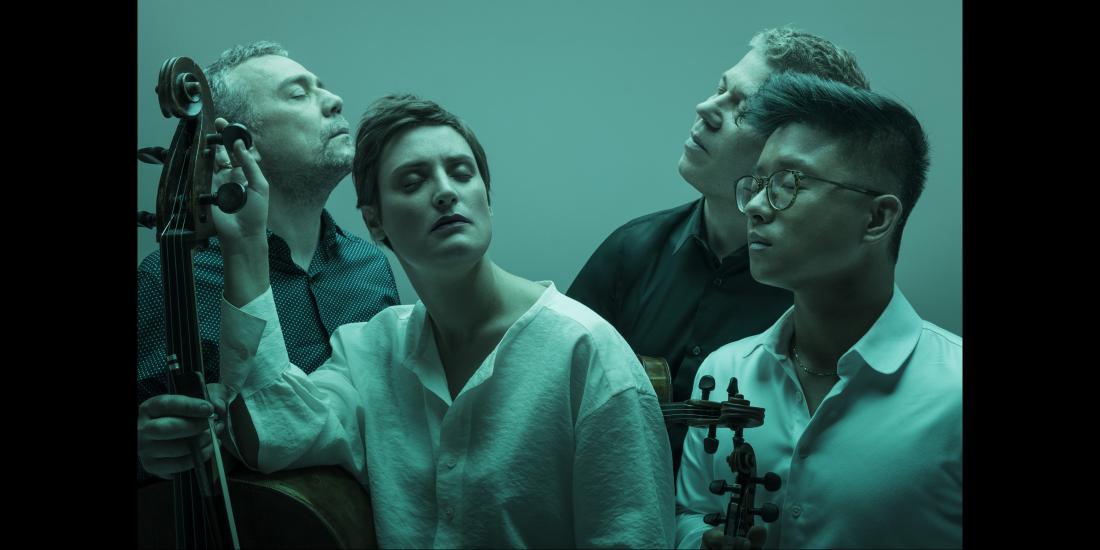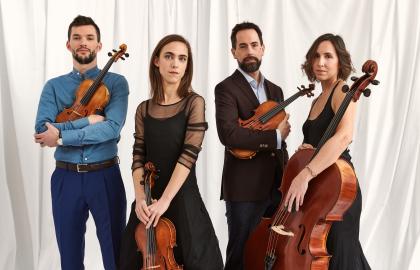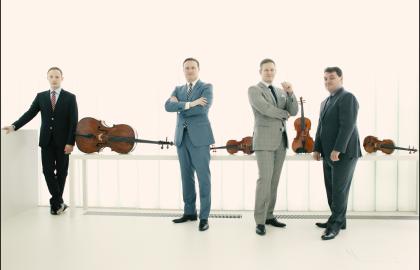As early as the 19th century, Goethe described is as a conversation between four intellectuals. Indeed, at times a string quartet is very much like a debate: the musicians can be playing in harmony one moment, before switching to a rhythmic opposition and finally ending on a melodious compromise. But which is the quartet for you? Bozar has some tips.
1) Sofia Gubaidulina: If you are not averse to avant-garde
The Russian composer Sofia Gubaidulina will be celebrating her 90th birthday this season. An excellent reason for the Minguet Quartett to pay her homage with a performance of her String Quartet No.1 (1971). In this 20-minute work she sought to represent the 'impossibility of togetherness'. The work seems to never have any real goal. Whereas in the opening bars the musicians engage in dialogue, they soon begin to play systematically in opposition to one another, through the harmonies, rhythms, timbres, and dynamics. They eventually lose all sense of direction, something which Gubaidulina translates visually by having the musicians move to the four corners of the stage. Each musician concentrates on his or her personal story, regardless of what their fellow musicians are doing.
2) Anton Webern: For the incurable romantic
The name Anton Webern probably brings to mind the modernist composer who was a major source of inspiration for the postwar avant-garde composers. Yet his Langsamer Satz is a work of pure romanticism in which he expresses his love for Wilhelmine Mörtl, a beautiful woman he fell in love with after taking a walk together. This is what he wrote in his diary about the meeting: ‘Our love rose to infinite heights and filled the Universe'. The couple were originally set to marry in 1911, but there were complications: Mörtl was Webern's cousin! But as love conquers all, after having had four children together they were finally wed in 1915.
3) Leoš Janáček: For the lover of literature
The darker side of love is expressed in the wonderful Kreutzer Sonata by Leoš Janáček. This Czech composer has long been a favourite with opera lovers for his dramas such as Jenůfa, The Makropulos Affair and Káťa Kabanová. But his string quartets are well worth discovering as well. In his Kreutzer Sonata, his point of departure is a novel of the same name written by Tolstoy, in which Pozdnyshev tells of his unhappy marriage. Janáček does not narrate the story but rather evokes the strongly contrasting emotions of the protagonists, including desire, anger, disappointment and frustration.
4) Philip Glass: For the latest music
The string quartet remains very much alive today. At Bozar, the Tana String Quartet will be performing the latest quartet by none other than Philip Glass, in what is a world premiere. A first! With his melancholic, repetitive patterns, it seems the world can't get enough of this American minimalist.




